Daniel Becker Studio is a Berlin design studio offering exceptional high-quality lighting.
They design expressive but minimalist elements with an emphasis on details. What gives character to their products are carefully crafted details by skilled craftsmen, created with beautiful interiors and spaces in mind.
The design process is based on the use of modern technologies combined with traditional craftsmanship. Archetypes and typologies are often the starting point, and the topic of modularity is also an important aspect of the studio's work.
When it comes to materials, they prefer metals - steel, brass, aluminum, copper - because of their natural colors. The use of metals also allows to work with sophisticated finishes, ranging from polishing, anodizing, powder coating or wet painting. LED technology is used in the lighting fittings designed by the studio. They pay close attention to the quality of light, especially when it comes to its propagation in space, and they are guided by obtaining unusual effects by a unique atmosphere.
Daniel Becker studied industrial design at the University of Arts in Braunschweig.
In 2018, he was named one of the top 50 German designers. In 2019 he won the German Design Award. His works are regularly exhibited and published around the world.
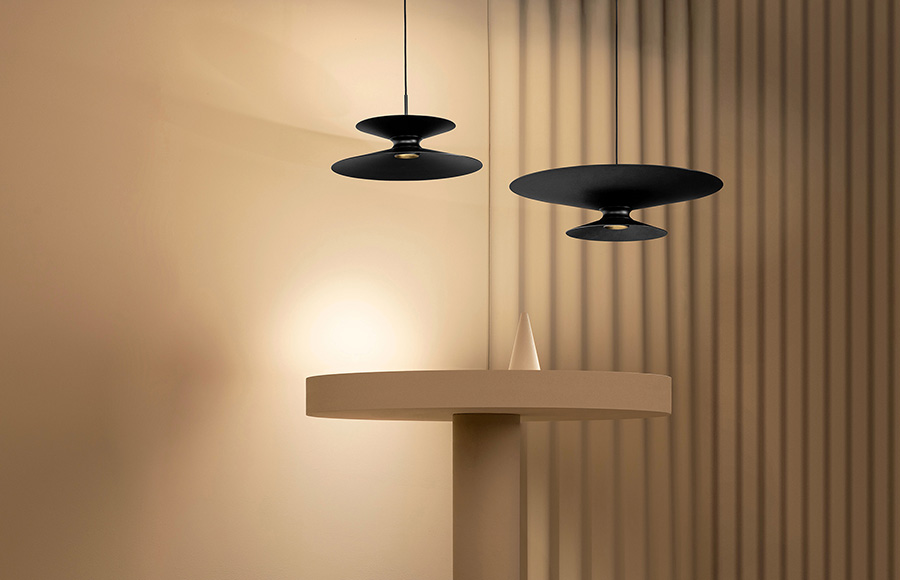
In celebration of the Moonlight series, we decided to ask the designer a few questions.
CHORS: Daniel Becker Studio is a studio that primarily develops lighting designs and occasionally also spatial designs. How would you define the studio's mission and the values you follow at work?
DANIEL BECKER: We approach each new design with the intention to make it innovative, both as regards its concept and creating its typology and shape. We strive to design items with a strong character that are expressive but minimalistic. We pay a lot of attention to detail and overall impression. We live at the time of hyper-consumption and tremendous waste of materials. It is certainly not a good thing for the future generations. I’m deeply convinced that we shouldn't create pointless items that don't serve us any better than their earlier versions and are only used for a short period of time. It is a difficult challenge that cannot always be achieved. However, I believe that the product should be as sophisticated as possible.
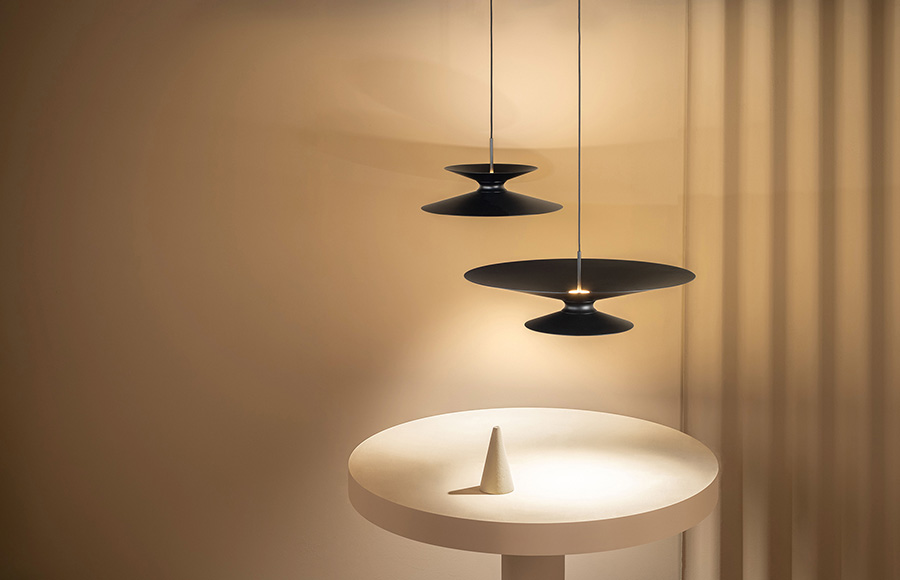
CHORS: Which design challenges do you find the most fascinating and which ones do you find the most contributing to the development?
DANIEL BECKER: The most challenging and at the same time the most fascinating designs are the ones from the fields I have no idea about. These are also, of course, the designs where I can develop as a designer. Such work gives a lot of satisfaction, because in the absence of experience one thinks completely out of the box. Moreover, if you work in a good team, you also inspire others to take on challenges and look for solutions they have never considered feasible.
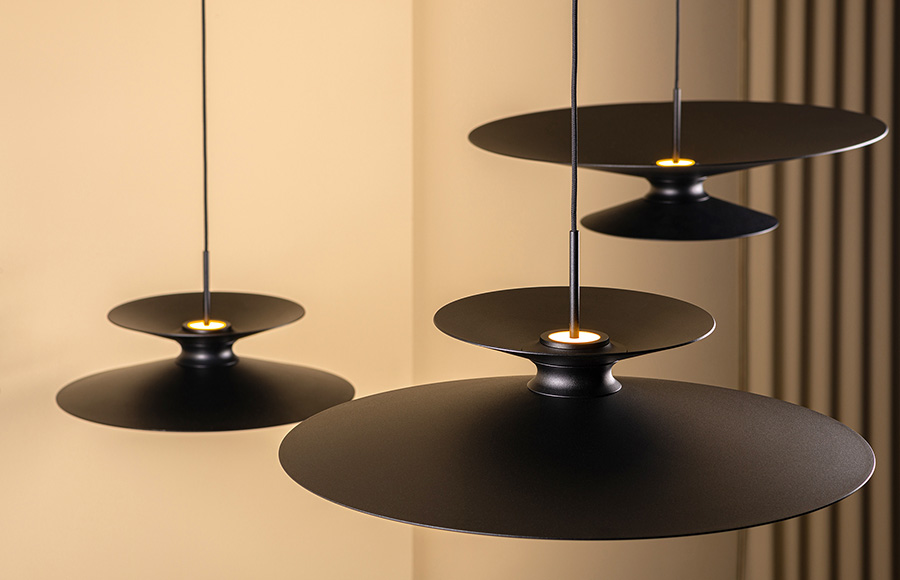
CHORS: You are a designer of a series of luminaires for various brands. What is light for you? How do you perceive its role in interiors?
DANIEL BECKER: I believe that light plays an absolutely crucial role in any interior, but unfortunately it is often underestimated and reduced to its most basic function - that of “making my place lit”. There are so many people in the world who just have a light bulb hanging from the ceiling in the middle of a room. When people who are unaware of how the quality of light affects them walk into a well-lit space, they are usually astonished. They immediately feel better, more natural, more stable. The factors taken into account when designing good lighting include how it is directed, whether it is not glaring and whether it renders colours in a natural, attractive way. There are few things in life that affect us as much as light. However, in most cases we only notice it when it is missing.
As for the lamp itself, in my opinion, a good design must create a balance between the two complementary elements. The first one is the part which is almost invisible, but which appeals to the soul and the senses. What I mean is the direction of light, its refraction and quality. The second one is the part which is closely connected with the actual object, its form and material. In lamps, I appreciate a concept or aesthetic that speaks to the heart and inspires, while being uncompromising about the light itself.
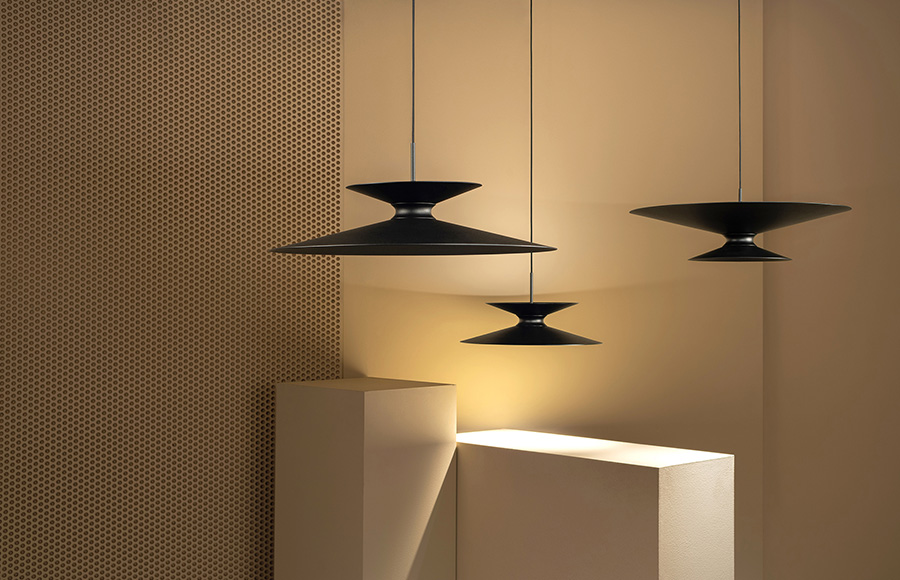
CHORS: You use a variety of materials in your designs. This makes them very diverse. How did you come up with the concept for the Moonlight luminaire?
DANIEL BECKER: At the beginning of the work with Moonlight luminaire it was an imaginative, brave approach to technical lighting. We mainly worked on a wall lamp of a rather abstract shape, with a very graphic and circular look. The light pattern that was created at that time resembled many light phenomena associated with the moon, which is why the luminaire got its name quite early. During this process, we developed the original concept. We started thinking about a pendant light with a strong visual logic, which we then divided into three individual models. I believe the result is a luminaire of a fresh, modern shape and unique character that makes the best use of the modern LED technology. It is a very well made product and we are certain that it will stand the test of time.
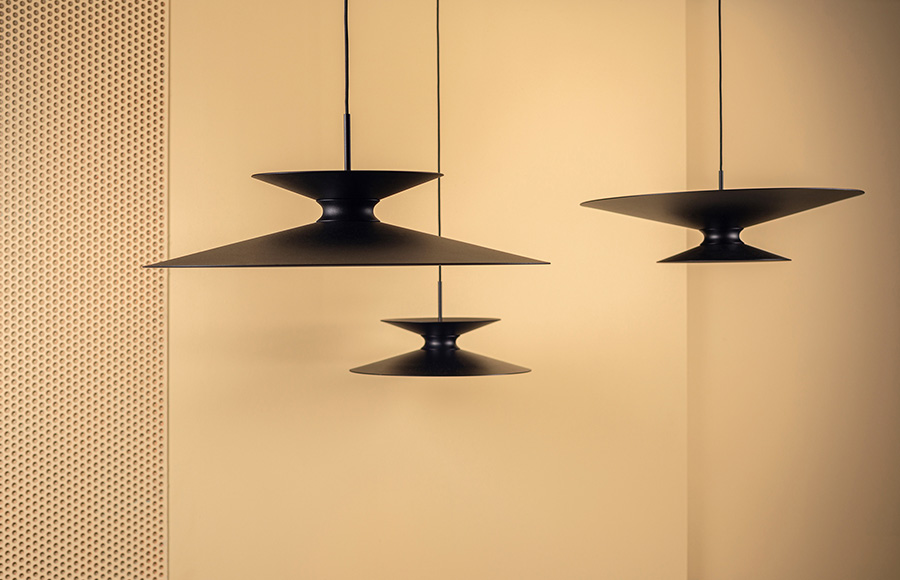
CHORS: You live and work in Berlin, while the entire prototyping and production process takes place at Chors in Wrocław. What was your first impression when you saw what Moonlight looks like and what light it gives?
DANIEL BECKER: Seeing this lighting for the first time was truly an amazing experience. The quality of light we managed to achieve, using the new SunLike LEDs combined with the glass lens, is simply fantastic. The meals served on my table have never looked so wonderful and natural! This technology is a real improvement and a real leap in home lighting. Throughout the process, I realised that Chors is a brand that really designs light, not just luminaires. We didn't have to make any compromises and together we did our best to turn the original vision into an industrial product.